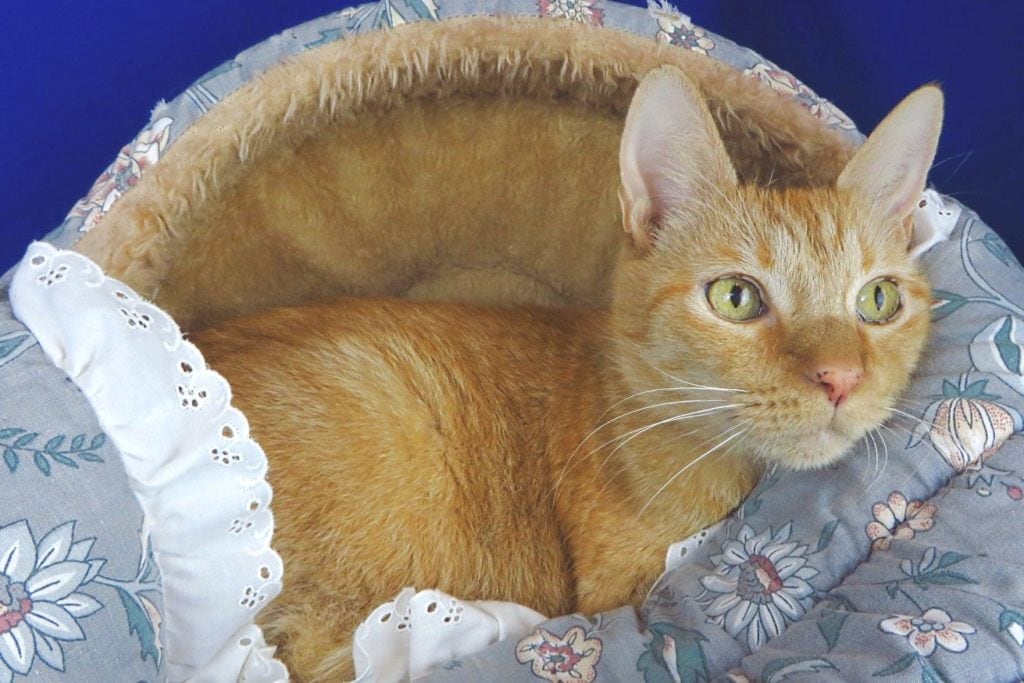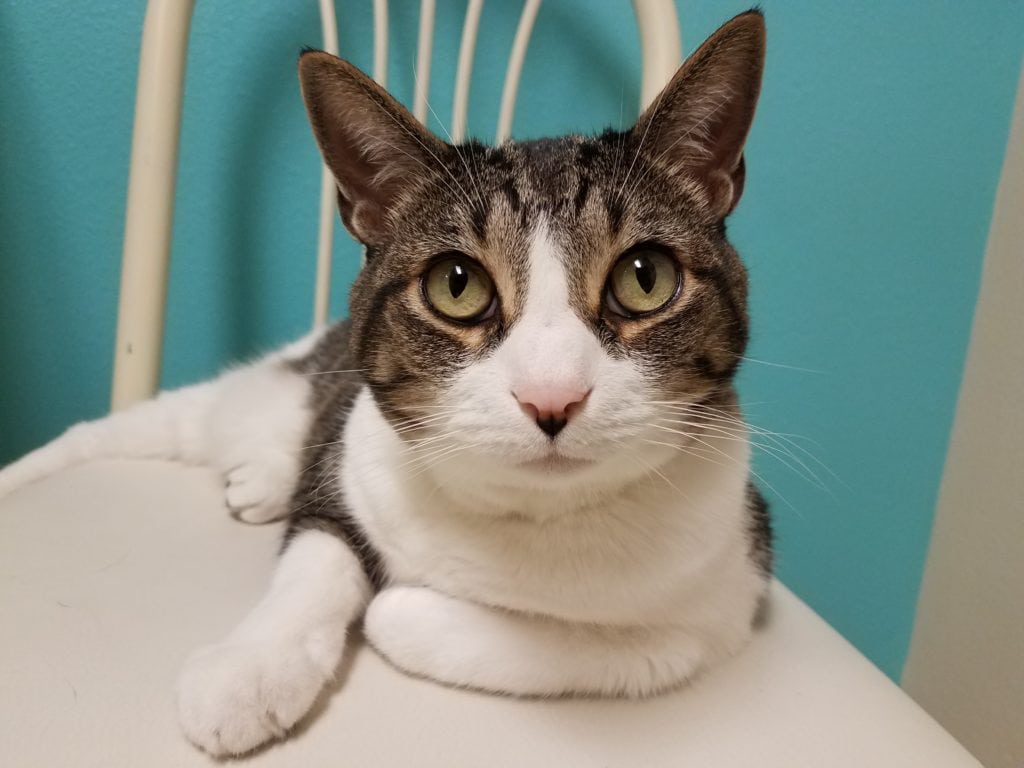Cats age 8 years and older often have a harder time adjusting to shelter life and may be especially grateful for new home. While they are in CAT’s care, senior cats receive special attention to make their stay with us as comfortable as possible. This could include extra medical treatment, prescription food, dietary supplements, nontraditional housing—including our colony rooms and offices—special bedding or litter boxes, and other adjustments specific to age or health issues.
Caring for a senior cat requires special attention at home too. Read on for ways to make your own aging cat comfortable.
Offer easy access. Older cats may experience difficulty getting to places and items that used to be no problem. You may need to make adjustments to ensure that your cat can easily access food, water, litter box, and even favorite resting spots.

When your cat can no longer jump up to a beloved bed or window seat, you might decide to rearrange furniture, build a ramp, or purchase pet stairs. Anything you make or buy should feature no-slip surfaces. Speaking of which, you might add extra rugs throughout your home if your cat is struggling on tile, laminate, or hardwood floors.
If you haven’t already, consider adding litter boxes. An extra litter box in a single-story home or one on each floor puts them in quick reach for a slower-moving cat. For a cat with mobility issues or arthritis, offer a litter box with low sides or a low entry. You can even use a large cookie sheet to create an extra-low litter box. Lining the area with potty pads provides a layer of defense against age-related accidents.
Keep it cozy. Cats of all ages seek out warm resting spots. Older cats in particular benefit from warmth and soft places to rest. Keep your cat’s favorite bedding in a sunny, soft spot that is out of the way of drafts or breezes. You might even consider an orthopedic or heated pet bed. Options include electric beds and cushions, microwaveable warming discs, and even self-warming bedding that heats up as your cat uses it.
Be the brusher. Elderly cats may be less likely to self-groom, making it important for you to step in to help. Gently brush your cat, provide frequent nail trims, and check teeth and ears for buildup. While your older cat may indeed reduce grooming, a sudden lack of self care could indicate a health problem.
Seek veterinary care. Senior cats may sleep more, lose or gain weight, and move differently than when they were younger. But you shouldn’t assume health or behavior changes are just normal aging. Any changes—even those that are gradual—can signify illness or other issues. Senior cats should see the vet at least every six months. Your veterinarian might recommend blood work, x-rays, or other tests to diagnose health issues that are common among senior cats, including renal issues, heart disease, arthritis, and hyperthyroidism. Early diagnosis and treatment are your best chance to extend and improve your cat’s life.
Caring for a senior cat may take some extra work, but it’s worth it. With a few changes to your home and cat care routine, you can help your cat age with grace.







